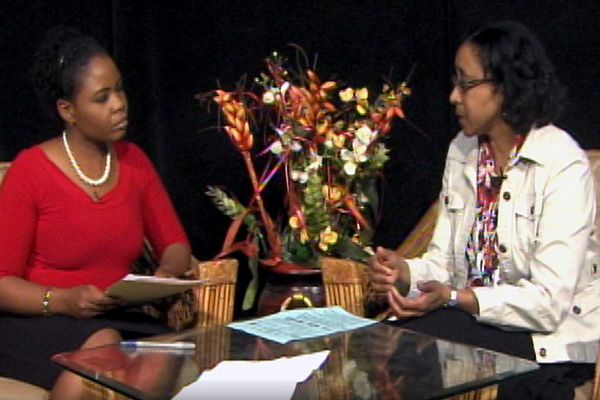Dr. Bessie young on Kidney Screenings
(ZIZ)– Following the recently concluded leg of kidney, blood glucose and blood pressure screenings on Nevis, Dr. Bessie Young, a visiting Nephrologist, says one thing is clear: there is very likely an epidemic of Diabetes in the Federation.
Speaking on Wednesday, Dr. Young who is an Associate Professor of Nephrology at the University Washington, said that based on approximately 1000 people who were screened on Nevis alone, the numbers of people testing with elevated blood glucose and who were diabetic or hypertensive, was concerning.
“There is a very high prevalence of people who have Diabetes and a high prevalence of people who don’t know that they have. I think what we found yesterday is that many people have high blood pressure and maybe aren’t taking their medications so this will at least give us a way to check in with people, give them the information that they can take back to their doctors so that they can get treatment if they need to,” Dr. Young explained.
She then described the main risk factors for kidney disease and the process, participants in the screening exercise, can expect to go through.
“The main risk factors for kidney disease are Diabetes and Hypertension and a family history of kidney disease and those are the number one causes of kidney failure at least in the United States,” she said, adding “I think what we don’t know here is what the numbers are or people who have chronic kidney disease, what’s the prevalence of chronic kidney disease…so we are doing a rapid screening for creatinine: which is the blood test that tells us what someone’s kidney function is so that we can just get some data on what the prevalence of kidney disease is.
“When people come for the screening, they will basically go through a screening line, get their height and weight measured, they will get their blood pressure measured, they’ll have a little bit of blood drawn so that we can do this creatinine blood test and then we’ll get the percent function then we’ll check their glucose. When that’s all done, they’ll go through an education where someone will review all their lab tests and tell them where they’re at and what we found,” Dr. Young explained.
Participants in the screening exercise will receive their results within 20 minutes of completing the quick tests. They will then be advised by medical experts on whether they need to seek further treatment for those at risk or how to maintain continued good health if they are not.
Testing took place on March 20 and continues today [March 21] from 8am to 4pm at McKnight and Newtown Community Centres.

